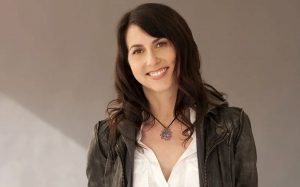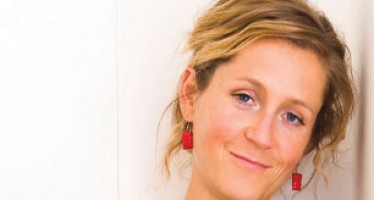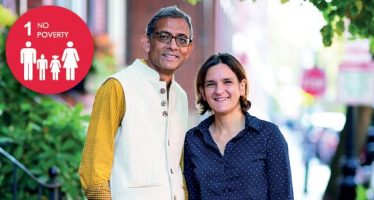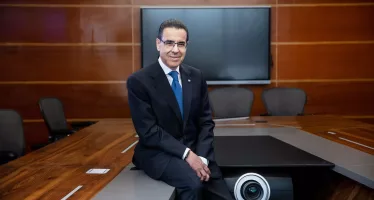Mackenzie Scott: Giving Wealth Away

Novelist and philanthropist Mackenzie Scott. Photo: Elena Seibert
Mackenzie Scott, the third-richest woman in the world, last year started giving her wealth away.
“There are lots of resources each of us can pull from our safes to share with others,” she said. “I have a disproportionate amount of money to share. But I won’t wait. And I will keep at it until the safe is empty.”
According to Forbes, the net worth of MacKenzie Scott (formerly MacKenzie Bezos) in January 2021 sits around $56bn. That figure bounces around in conjunction with Scott’s recent record-breaking run of philanthropy. By the end of 2020, she had given away nearly $6bn.
Her fortune stems from her stake in Amazon, the e-commerce juggernaut that she helped her former husband to establish. As part of the divorce settlement, Scott was granted four percent of shares in the world’s fourth-largest company in terms of market cap ($1.6tn).
In May 2019, within a month of the divorce, Scott had signed her name to the Giving Pledge, the campaign started by Bill Gates and Warren Buffet to persuade the world’s wealthiest to donate the majority of their fortunes. Bezos — the richest man in the world with a net worth of over $187bn — is conspicuously absent from this roster. More than 200 people from 24 countries have signed, and a handful of the world’s billionaires have already donated up to a fifth of their wealth.
Fast-forward to the following summer, as nations worldwide were brought to their knees by the Covid crisis. “Like many, I watched the first half of 2020 with a mixture of heartbreak and horror,” she wrote on Medium in August. “Life will never stop finding fresh ways to expose inequities in our systems, or waking us up to the fact that a civilisation this imbalanced is not only unjust, but also unstable.”
Scott pulled together a team to help translate her altruistic intentions into support for those worst-hit by the crisis. They took a data-driven approach to identifying organisations with strong leadership teams and results, with special attention to those operating in communities facing high projected food insecurity, high measures of racial inequity, high local poverty rates, and low access to philanthropic capital.
The team started with a list of 6,490 organisations, compiled from suggestions from hundreds of field experts, funders, non-profit leaders and volunteers with decades of experience. That list was pared back to 384 US organisations working to fulfil basic needs or “addressing long-term systemic inequities that have been deepened by the crisis”: debt relief, employment training, credit and financial services for under-resourced communities, education for historically marginalised and under-served people, civil rights advocacy groups, and legal defence funds that take on institutional discrimination.
“We do this research and deeper diligence not only to identify organisations with high potential for impact,” Scott said, “but also to pave the way for unsolicited and unexpected gifts given with full trust, and no strings attached. Because our research is data-driven and rigorous, our giving process can be human and soft.”
Her generosity came with little fanfare and complete trust in the organisations to put the money to good use. Scott, who rarely speaks to the media, didn’t disclose the individual donations — but they were estimated to vary between $3m and $40m.
Some criticise Scott for the lack of transparency, but the real rub comes from the source of her fortune: Amazon and its cut-throat, guerrilla-warfare tactics.
“That money, as she very well knows, was made through tax avoidance, by wage theft, by union busting, by driving workers into the ground at every turn,” author Anand Giridharadas told Marker. “She now has this classic modern dilemma: she is a serious person who wants to give the money back in ways that actually advance justice.”
Giridharadas highlighted the exclusion of labour rights groups from Scott’s list of beneficiaries. “The most important thing she could do is make sure she’s pushing for the kind of structural, systemic changes that would make it impossible for a fortune like hers to arise ever again.”
You may have an interest in also reading…
Martha Lane-Fox: Dot Everyone to Reclaim the Net for Civil Society
Seeking succour for the digitally-challenged, Britain’s Martha Lane-Fox – or Baroness Lane-Fox of Soho as she is known around Westminster
Poverty Myths, and Professorial ‘Power Couple’ Dispelling Them
Abhijit Banerjee and Esther Duflo give new meaning to the term “power couple”. The husband-and-wife team are economics professors at
Managing Popular Banking and Practising Financial Inclusion? Challenges Accepted!
Mexico’s Banco Azteca has risen to the top thanks to its inclusive policies — and astute direction from its chairman.


















































































